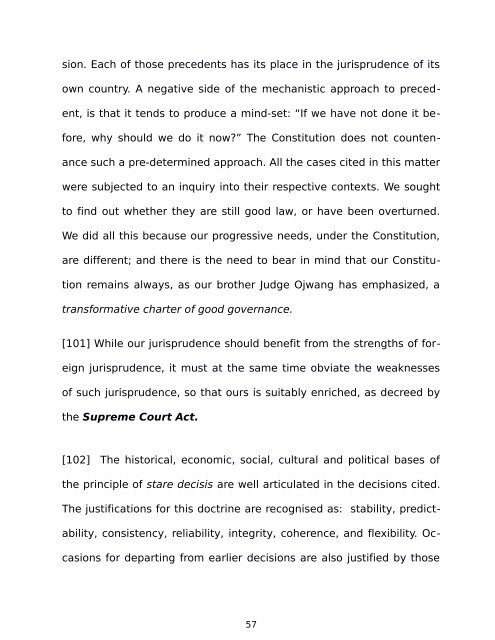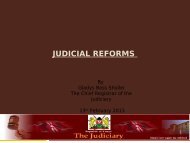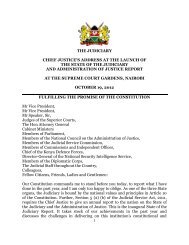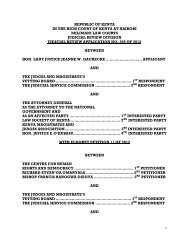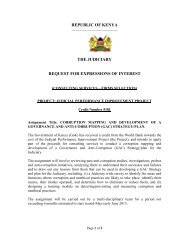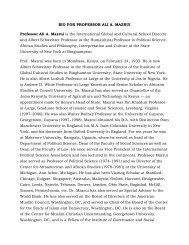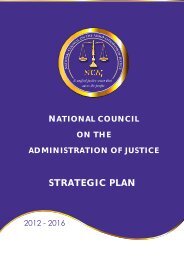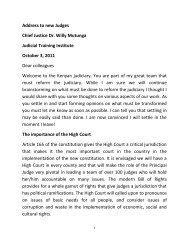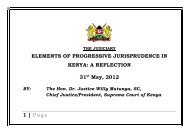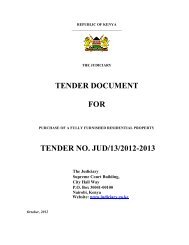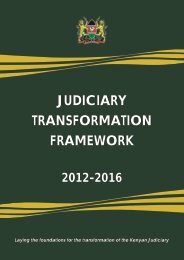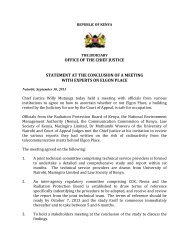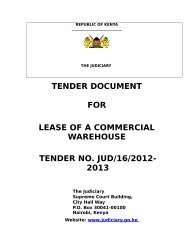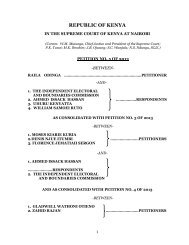REPUBLIC OF KENYA - The Judiciary
REPUBLIC OF KENYA - The Judiciary
REPUBLIC OF KENYA - The Judiciary
Create successful ePaper yourself
Turn your PDF publications into a flip-book with our unique Google optimized e-Paper software.
sion. Each of those precedents has its place in the jurisprudence of its<br />
own country. A negative side of the mechanistic approach to precedent,<br />
is that it tends to produce a mind-set: “If we have not done it before,<br />
why should we do it now?” <strong>The</strong> Constitution does not countenance<br />
such a pre-determined approach. All the cases cited in this matter<br />
were subjected to an inquiry into their respective contexts. We sought<br />
to find out whether they are still good law, or have been overturned.<br />
We did all this because our progressive needs, under the Constitution,<br />
are different; and there is the need to bear in mind that our Constitution<br />
remains always, as our brother Judge Ojwang has emphasized, a<br />
transformative charter of good governance.<br />
[101] While our jurisprudence should benefit from the strengths of foreign<br />
jurisprudence, it must at the same time obviate the weaknesses<br />
of such jurisprudence, so that ours is suitably enriched, as decreed by<br />
the Supreme Court Act.<br />
[102] <strong>The</strong> historical, economic, social, cultural and political bases of<br />
the principle of stare decisis are well articulated in the decisions cited.<br />
<strong>The</strong> justifications for this doctrine are recognised as: stability, predictability,<br />
consistency, reliability, integrity, coherence, and flexibility. Occasions<br />
for departing from earlier decisions are also justified by those<br />
57


